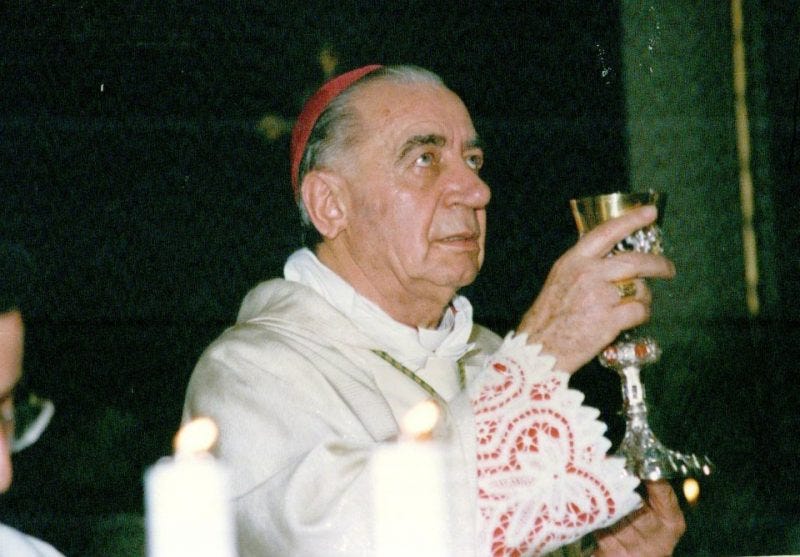‘What if someone were to do something about it?’ That was the catchphrase of Father Pino Puglisi, a Catholic priest who worked in the Brancaccio district of Palermo, where he was born in 1937, and where he died on his fifty-sixth birthday in 1993, shot dead by a Mafia hitman.
Generally, the Mafia do not threaten priests, or women or children, or indeed ‘innocent’ bystanders. Indeed, Father Pino Puglisi was the first priest ever to be murdered by the Mafia, which, of itself tells a tale.
Historically, the Catholic Church has either ignored the Mafia or played it down. This strategy is very common in Italy where people will seriously assert that the Mafia ‘does not exist’. No less a person that Cardinal Ruffini, Archbishop of Palermo from 1945 to 1967, when asked about the Mafia by a journalist, replied: "So far as I know, it could be a brand of detergent."
There were two reasons for this: for people like Ruffini, the main threat was always Communism, and it ought to be remembered that the Italian Communist Party, which took its orders from Moscow for decades, was a clear and present danger right up to the seventies. The second reason was that in certain parts of Sicily, despite the signs of religiosity that one sees everywhere, religious practice is very low; but in the regions dominated by the Mafia, it was rather higher; so the Mafia was perceived as in some ways an ally of the Church, and it is undeniable that Mafia men were and are social conservatives, who, while never going to Church themselves, nevertheless make sure their women and children do go to Mass every Sunday.
While there have been clerics who have turned a blind eye, like Ruffini, there have been others who have been vociferous in their condemnation. One such was Monsignor Antonio Riboldi, bishop of Acerra in Campania from 1978 to 1999, who, thanks to his repeated condemnations of organised crime, received death threats, and had to have a police escort. Riboldi was a huge celebrity in Catholic Italy, even though his diocese was a tiny one, and despite the fact that he was never promoted as some wanted him to be. I saw him once or twice: he had a preoccupied look, as well he might have, and smoked very thin cigars.
Was Riboldi ever at risk of assassination? I doubt it. The Mafia really don’t care what people say about them. Father Pino Puglisi’s catchphrase was ‘What if someone were to do something?’ as opposed to ‘say something’. It wasn’t what he said, it was what he did that led to his assassination, along with the unfortunate coincidence of the rise of bosses like Totò Riina, who were not averse to shedding blood in abundance.
Father Puglisi was an outstanding priest, with a particular talent at what the Church calls ‘youth ministry’. He attracted a large following among the young and he proclaimed the Gospel: in other words, he incarnated the values of Christian charity which are directly opposed to the stock in trade of the Mafia, namely deference, intimidation and ‘respect’. As a result, the youngsters of the Brancaccio quarter no longer wanted to work for the bosses, but wanted to live a different sort of life. This was intolerable to the bosses, and their vanity was enraged by the thought that there was clearly a different and better way of doing things.

‘I have been expecting you,’ were the last words the priest uttered, as he faced his assassins.
But what followed next was unexpected. The wheels of justice move pretty slowly in Italy, but some five years later the assassins and more importantly those who ordered the assassination, were caught, tried, and found guilty, and sentenced to life imprisonment, largely thanks to the repentance of one of the killers. And as for Father Pino, he now lies in the Cathedral of Palermo, where his tomb is a place of pilgrimage. He has been beatified by the Church and will one day be declared a saint. His was certainly a life of heroic virtue.









Good article.